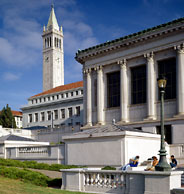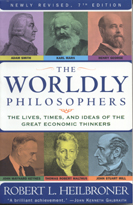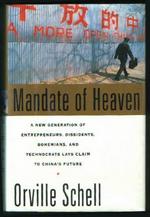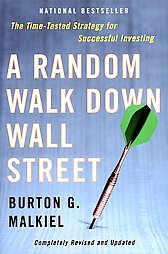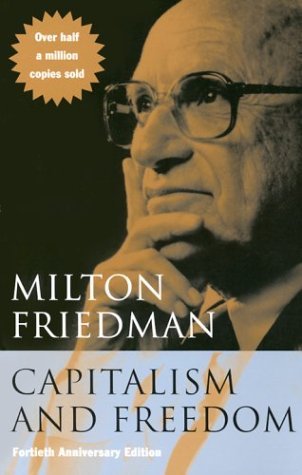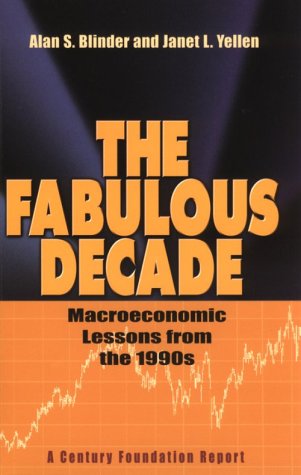Bank of China, Sinopec to Join Hang Seng Stock Index
From Bloomberg By Hanny Wan and Darren Boey
Bank of China Ltd. and China Petroleum & Chemical Corp., known as Sinopec, will be added to Hong Kong’s Hang Seng Index after a quarterly review of the stock benchmark, the compiler said.
The number of constituents on the Hang Seng will rise to 36
from 34, HSI Services Ltd. said in a statement after the market
closed today. No deletions were announced. The changes will take
effect on Dec. 4, the index provider said.
Bank of China and Sinopec, so-called H shares of companies
incorporated in mainland China, had been tipped for inclusion by
brokerages such as Nomura International (Hong Kong) Ltd.
The addition reflects the Chinese companies’ growing
presence on Hong Kong’s stock market. The exchange’s Web site
shows H shares at the end of October accounted for 21 percent of
the value of the main board, up from 1.5 percent at the end of
1997, the year the U.K. returned Hong Kong to China.
Bank of China and Sinopec’s inclusion “is evidence that H-
shares are getting more important,” said Kent Yau, deputy head
of research at Core-Pacific Yamaichi International in Hong Kong.
“If you look at the trading volume of H shares, they’re getting
bigger and bigger.”
The number of Hang Seng members will be gradually increased
to 38 to include H shares, HSI Services said in June. China
Construction Bank Corp., the nation’s fourth-largest lender, was
the first H share to join the stock benchmark after the index
compiler’s August quarterly review.
Shares of Bank of China, the nation’s second-largest lender,
have climbed 16 percent since they were sold in an initial public
offering at the end of May. Sinopec, Asia’s largest oil refiner,
has surged 47 percent this year.
“Bank of China was a bit of a surprise,” Yau said. “Short
term it’s going to get a boost. It’s positive news. Investors will
probably start to accumulate” before the changes take effect.
HSI Services determines constituents based on criteria such
as market value and trading volume. Adjustments would prompt
funds that mirror the stock benchmark, such as the $3.4 billion
Tracker Fund of Hong Kong, to buy stocks that are added.
Exchange-traded funds may have to buy HK$475.3 million
($61 million) of Sinopec shares and HK$579.4 million of Bank of
China shares in response to the inclusion in the Hang Seng, Sandy
Lee, an analyst at Nomura, said in an e-mail after HSI Services’
statement was released.
Bank of China has a market value of HK$851 billion, behind
HSBC Holdings Plc and China Mobile Ltd. among existing Hang Seng
Index members.
Sinopec, Asia’s biggest refiner, is valued at HK$562 billion,
which would put it behind Construction Bank, currently the
measure’s third-biggest company.
HSI Services also said it will start an index to measure the
H shares of Chinese financial-related companies from Nov. 27. The
Hang Seng China H-Financials Index will track five lenders
including Bank of China and Construction Bank, and three insurers
such as China Life Insurance Co.
Google Buys JotSpot to Expand Online Document-Sharing Service
Google Inc. said it acquired closely held start-up JotSpot for an undisclosed sum, a move that could strengthen Google’s expanding services for users to create and share documents online.
JotSpot, exploiting a technology called wikis, provides free and paid services that allow individuals to jointly work on Web-based information such as spreadsheets, photo albums, calendars and contact lists. Google, Mountain View, Calif., has assembled free online word-processing, spreadsheet, email and calendar services that have some similarities with JotSpot’s offerings. Such services could win away some of the consumers Microsoft Corp. is targeting with its Office software.
JotSpot Chief Executive Joe Kraus said his company was happy to join Google because “it’s really clear they are focusing on letting people collaborate and share and work together online.” Google executives are also trying to streamline the number of products the company has, and Mr. Kraus said JotSpot would focus on how to integrate with Google’s existing services.
JotSpot, Palo Alto, Calif., has about 30,000 paying corporate customers at about 2,000 companies. Roughly 300,000 people use JotSpot’s free service, which carries some storage and other restrictions. The company, which received funding from the Mayfield Fund and Redpoint Ventures venture-capital firms, has 27 employees.
Will TCL Ultimately Withdraw From Europe?
From The Wall Street Journal
TCL Will Produce Fewer Sets in France As Expansion Falters
TCL Multimedia Technology Holdings Ltd. announced plans to overhaul its European television-manufacturing operations — the latest sign of problems with the company’s expansion strategy.
The changes will result in TCL producing fewer TV sets in France and, temporarily, other European countries. Those it produces won’t be sold under its own brand but will be supplied to other companies.
Its deal in 2003 to acquire the European TV business of Thomson SA marked one of the more significant moves by a Chinese company to expand overseas in recent years and left TCL in control of the Thomson brand in Europe and the RCA brand in the U.S.
TCL opened its first factory dedicated to flat-panel TV sets only last year, well behind Sony Corp., Samsung Electronics Co. and LG Electronics Co. Earlier this year, TCL moved to secure LCDs by forging a supply deal with LG.Philips LCD Co. LCDs are used in the most popular type of flat-panel TV sets.
Lenovo Hunting for Brand Exposure, Using NBA
From The Wall Street Journal, Lenovo is now scrambling to borrow exposure from NBA. Unfortunately, brand is not something that NBA can bring to Lenovo, brand is a long time accumulation of, most importantly, quality and reliability. Even if everybody hear about Lenovo, still few will buy Lenovo computers. Considering Lenovo’s dire profit margin, this marriage with NBA can only pull Lenovo to the red.
Lenovo Signs Deal With the NBA In Bid to Build Brand Awareness
By Jane Spencer
Chinese computer maker Lenovo Group Ltd. signed a multi-year marketing partnership with the National Basketball Association, as the company takes steps to build global brand awareness.
The deal comes as Lenovo is in the early stages of weaning itself of the IBM brand name. Last year, Lenovo emerged as the world’s third largest personal-computer maker behind Hewlett-Packard Co. and Dell Inc., after purchasing International Business Machines Corp.’s PC division for $1.25 billion.
As part of the deal with IBM, Lenovo earned the right to use IBM’s brand name until 2010 on its products. But the company isn’t allowed to use IBM’s name in marketing campaigns. As a result, the company is ramping up its efforts to build Lenovo’s name recognition in the U.S. and Europe, where most consumers are still far more familiar with the IBM name. Outside of China, more than 80% of Lenovo products still carry the IBM brand name.
Michael Bloomberg Not to Sell His Company
Michael Bloomberg, founder and the largest share holder of Bloomberg LP, denied that he is about to sell his company, which is estimated to be worth as much as $12 billion.
It was said that potential buyers include Blackstone Group, the manager of the largest buyout fund, and Kohlberg Kravis Roberts & Company. McGraw-Hill and Thomson were also said to be interested.
Forbes magazine estimated that Bloomberg had $4.1 billion in revenue last year. The company has about 9,000 workers world wide.
In the over $10-billion financial market, Bloomberg seizes about 31 percent share and its rival, Reuters, takes about 23 percent, estimated an editor of the trade publication Inside Market Data Reference.
Read the news story from NYT.
Good News from Silicon Valley
EBay‘s third-quarter profit grew by 10 percent, helped in part by a lower tax rate and strong sales at its online payments unit.
Apple Computer‘s fourth-quarter profit increased 27 percent rise in its fiscal fourth-quarter profit.
The biggest winner is Google, whose third-quarter profits nearly doubled.
Microsoft CEO Ballmer Answers the Question:Is Windows Near End of Its Run?
The New York Times published an interview with Steven Ballmer.
Is Windows Near End of Its Run?
Steven A. Ballmer, the chief executive of Microsoft, has his hands full. The next version of the Windows operating system, Vista, is finally about to arrive — years late and clouded by doubts that it might violate antitrust rules in Europe.
Mr. Ballmer, 50, has been deeply involved in the discussions with the European competition authorities.
Windows Vista and Office 2007, according to industry analysts, may be the last time Microsoft can really cash in on these lucrative personal computer products, as software is increasingly distributed, developed and used on the Internet.
Yesterday, Microsoft announced that Vista would be shipped in late January and expressed confidence that it would pass regulatory scrutiny. [Page C3.]
In fast-growing consumer markets, Microsoft is playing catch-up. It trails well behind Google in Internet search. Next month, Microsoft will introduce its Zune music player, in an uphill effort to take on the Apple iPod.
At Microsoft, Mr. Ballmer must adjust to being alone at the top, as his friend and longtime partner, Bill Gates, eases out of his company duties to work full time on philanthropy.
In a meeting this week with editors and reporters of The New York Times, Mr. Ballmer answered questions about Microsoft, his job and the future of software. Following are excerpts:
Q. What was the lesson learned in Windows Vista? After all, it wasn’t supposed to ship more than five years after Windows XP.
A. No. No, it wasn’t. We tried to re-engineer every piece of Windows in one big bang. That was the original post-Windows XP design philosophy. And it wasn’t misshapen. It wasn’t executed, but it wasn’t misshapen. We said, let’s try to give them a new file system and a new presentation system and a new user interface all at the same time. It’s not like we had them and were just trying to integrate them. We were trying to develop and integrate at the same time. And that was beyond the state of the art.
Q. In the future, will the software model change? Will the Internet, for example, be the way most software is distributed?
A. That will happen. It’ll happen from us. It’ll happen from everybody.
Q. Doesn’t that mean that software product cycles are going to be much shorter, months instead of years?
A. Things will change at different paces. There are aspects of our Office Live service, for example, that change every three months, four months, six months. And there are aspects that are still not going to change but every couple of years. The truth of the matter is that some big innovations — and it’s a little like having a baby — can’t happen in under a certain amount of time. And, you know, Google doesn’t change their core search algorithms every month. It’s just not done.
Q. Is Vista the last operating system of this era? That is, the last operating system in the traditional sense of being this monolithic software product? Don’t these Internet changes open the door to Windows à la carte? After all, you have different versions of Windows now for personal computers, cellphones and hand-helds.
A. Windows is a little different because Windows manages the hardware. It’s got to come with the hardware and manage the hardware. For the thing called the PC — the thing we think of as having a big screen and a keyboard — there really is one infrastructure for supporting hardware, for supporting application development. It’s not 100 percent monolithic. But it’s almost 100 percent monolithic.
Q. Can we talk about Europe?
A. Beautiful place. I lived in Brussels for three years as a kid. I do love Brussels.
Q. I was thinking of what seems to be the continuing conflict — the disputes, penalties and fines — over how Microsoft designs Windows and what features you put in the operating system. Is there a way around that problem?
A. First of all, I wouldn’t call it conflict. We really have — no, I mean this genuinely — have been having a constructive dialogue. Now, no regulator, not in this country nor in Europe, is going to give you a gold star that says, I will attest that everything in Vista is OK. The Department of Justice is not going to do that, and the European Union is not going to do that. At the end of the day, we can get a lot of guidance. And then we have to make the call and we have to take the risk. We really just have to decide whether we think the thing is compliant. It’s not really their issue. It’s kind of our issue in an odd way.
A. With Bill Gates making the transition out of day-to-day involvement at Microsoft, what is the biggest challenge you have to overcome?
Q. Well, there are sort of two. First, it’s not like Bill’s written every line of code or designed every product or done anything like that for many, many years. But Bill’s been an incredible contributor. If Office 2007 is a great product, give Bill 3 or 5 or 10 percent of the credit. We have to make sure that — whether it’s 5 or 7 or 10 percent — we get those values someplace else. And second, with Bill people have understood that we’re committed to long-term innovation. Bill’s been emblematic of that. We’ve shared that vision all along the way. But I think I have to pick that up. Because people want to know that the buck-stops-here person is committed to continuing to invest and do things.
Q. Several of the areas Microsoft is betting on for future growth — Xbox, Zune and ad-supported Web software and services — are consumer markets. How do you think the consumer perceives Microsoft?
A. All our surveys will tell you consumers think the world of Microsoft. At the same time, you have to go win the consumer in each area. I’ll give you an example. When it came time to name Xbox, there was certainly a class of people who wanted to have Microsoft and/or Windows more prominent. They all lost. And it was a wise choice. Not because Microsoft is bad. But it wouldn’t have meant what it needed to mean to that audience. And Zune could have been Microsoft music system or Microsoft entertainment system or Xpod, I guess. But again, we thought the experience was different and it was worth giving its own identity. So I think we have a good seat with the consumer, but we have to prove ourselves every time as our competitors have to do, too, by the way. Google has a good brand. It didn’t help them a lick in video.
Q. What do you see as the most significant changes in how people use software?
A. I think one pervasive change is the increasing importance of community. That will come in different forms, with different age groups of people and it will change as the technology evolves. But the notion of multiple people interacting on things — that will forever continue. That’s different today, and we’re going to see those differences build. You see it in a variety of ways now, in social networking sites, in the way people collaborate at work, and in ad hoc collaboration over the Internet. You see it in things like Xbox Live, the way we let people come together and have community entertainment experiences. And you’ll see that in TV and video. It’s not like the future of entertainment has been determined. But it’s a big deal.
Airbus Will Pay China Southern $250 million
Following yesterday’s post about Airbus, a Chinese airline company will be compensated with $250 million from Airbus for the delay of the delivery of A380.
China Southern, an embattled airline company that has been in the red, will be paid by Airbus, said Xin Jingbao, a Beijing local newspaper. The newspaper said it’s the largest compensation that Airbus has ever promised for its repetitive postponing on A380 delivery.
The windfall, if confirmed by the European plane maker, will turn China Southern from the red to the black.
According to Airbus’ current schedule, China Southern will not be able to get A380, the largest airplane in the world, before the 2008 Olympics. Market analysts said the huge plane can only do China Southern good if it is delivered before the Olympics. The plane is of more importance on the airline company’s brand than on practical operation, as the cost of running such a huge plane will be more significant than the real profit.
What is Google? A Search Engine
The New York Times raised a very good question on Google’s recent acquisition of YouTube: Should Google integrate YouTube and risk losing one of the hottest brands on the Internet, or leave YouTube independent and risk diluting its own powerful brand?
The search engine overlord has made more than 15 major acquisitions in areas as diverse as blogging,personalized search, satellite imagery, image management and cellular phone technology, the newspaper said.
The Google sprawl didn’t make the founders happy. Rather it made users confused. And new products one-level down from the home page drew far less attention and traffic than Google would be comfortable with.
According to Alexa, a Web information company, 72 percent of those who use google do so to search from its home page. Another 10 percent use it for e-mail and 8 percent for its Web-based image search. Video has been a straggler, at 3 percent, the newspaper said.
But with the stable of talent that Google has built, why not develop its own YouTube?
Its engineering teams have, after all, created services, including Google Calendar, Mail and Spreadsheet as well as language translation technology built into Google’s search engine. More than a dozen services — including Google Video, Google Maps and Google Desktop Search — have come from the company’s advanced research arm, Google Labs.
But those creations are complemented, if not overshadowed, by its acquisitions. Still, except for Google Earth, not one has become an unqualified success or market leader.
Moreover, with the exception of advertising-related technology acquisitions, Google has yet to develop significant revenue streams from its acquisitions. Its Picasa image management program allows users to purchase photo prints, and the company sells a commercial version of Google Earth for $400, but neither of those are major businesses yet.
YouTube is different from Google’s previous acquisitions not because it has a proven business model — it does not — but because it comes with an established audience (read the full news story).
The Newly Appointed Airbus CEO Steps Aside
Christian Streiff, who was just appointed as CEO of Airbus this July, resigned on Oct. 9. Streiff clashed bitterly with EADS, the parent company of the embattled European planemaker, over how much freedom had had to overhaul the company, which is plagued by the repeated delay of the flagship A380 and by manufacturing disorders.
Streiff demanded considerable freedom to impose 2 billion euros ($2.5 billion) a year in cost cuts at Airbus, reported the New York Times.
But EADS has been determined to assert its control over Airbus since last June, when it was caught off guard by costly delays in the production of the A380 (read the rest or the news report).

